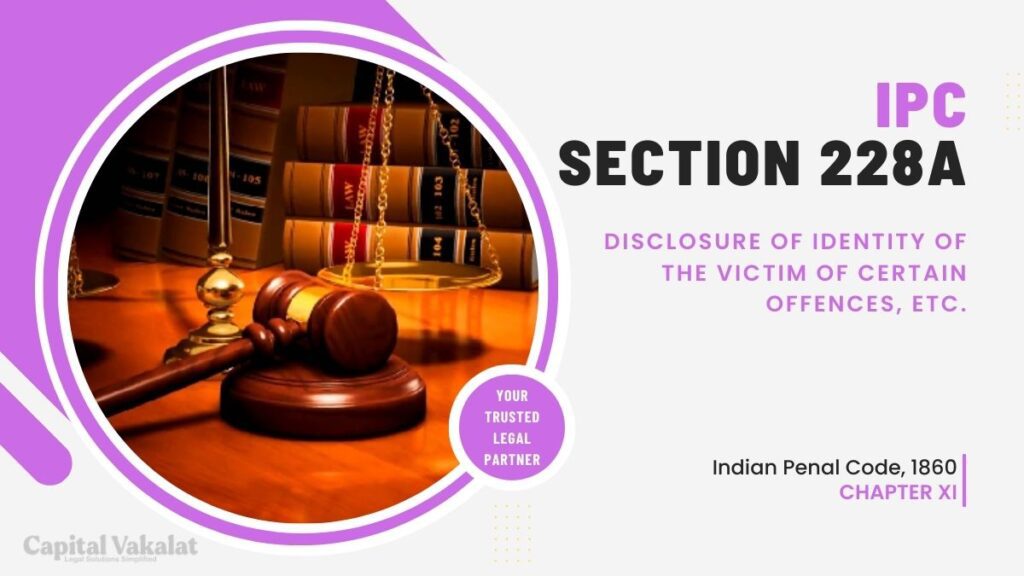In this digital age, information flows swiftly and boundaries blur when it comes to privacy and confidentiality. Section 228A of the Indian Penal Code (IPC) plays a pivotal role in safeguarding the rights and dignity of individuals, especially in cases where victims of certain offenses are involved.

This article delves into Section 228A IPC, focusing on the disclosure of the identity of the victim of certain offenses, the significance of this provision, and its implications.
The Importance of Victim’s Identity Protection
Protection of the victim’s identity is an indispensable aspect of our legal system. It serves to ensure the safety, dignity, and privacy of those who have already been subjected to traumatic experiences. Violation of this protection can have severe consequences, both legally and emotionally.
Understanding Section 228A IPC
Section 228A of the IPC deals explicitly with the disclosure of the identity of the victim of certain offenses, emphasizing the need to maintain confidentiality. It is designed to prevent the victim from suffering further humiliation or harassment.
Offenses Covered by Section 228A IPC
This section covers a wide range of offenses, such as sexual assault, acid attacks, and other crimes where victims may be vulnerable. Understanding which offenses are protected under Section 228A is crucial for upholding the victim’s rights.
Penalties for Violating Section 228A IPC
The consequences of violating Section 228A are not to be taken lightly. Understanding the penalties for disclosing the identity of a victim can act as a deterrent for those who may otherwise be negligent in protecting a victim’s privacy.
Challenges in Implementing Section 228A IPC
While Section 228A is a strong deterrent, it faces various challenges in implementation. The article explores these challenges, including issues related to online media and the difficulty of tracking down offenders.
Landmark Cases and Precedents
Examining past cases where Section 228A IPC was invoked provides a deeper insight into the practical application of this legal provision. Notable cases and their outcomes will be discussed.
Controversies Surrounding Victim Identity Disclosure
In a world driven by information and media, the debate over freedom of the press versus the right to victim identity protection has intensified. This section delves into the controversies and debates surrounding the disclosure of victim identities.
Public Awareness and Education
Creating awareness about the importance of victim identity protection is key to upholding Section 228A IPC effectively. This section discusses the need for public education and awareness campaigns to ensure compliance with this legal provision.
Conclusion
In conclusion, Section 228A IPC stands as a pillar of protection for victims of heinous crimes. Understanding its significance, the offenses it covers, and the penalties for violations is essential for safeguarding the dignity and privacy of individuals who have already suffered. While challenges and controversies persist, the need for strict implementation and public awareness remains undeniable.
Frequently Asked Questions
What are the typical penalties for violating Section 228A IPC?
Penalties may include fines, imprisonment, or both, depending on the severity of the violation and its impact on the victim.
How can the public contribute to raising awareness about victim identity protection?
Individuals can participate in awareness campaigns, support organizations working in this field, and promote responsible reporting by the media.
Are there any exemptions to disclosing victim identities in legal proceedings?
In some cases, courts may allow for the disclosure of victim identities if it is deemed necessary for a fair trial. However, strict procedures are followed to protect the victim’s privacy.
What should I do if I come across a case of victim identity disclosure that violates the law?
Report the violation to the relevant authorities or law enforcement agencies. It is crucial to take action to protect the victim’s rights.